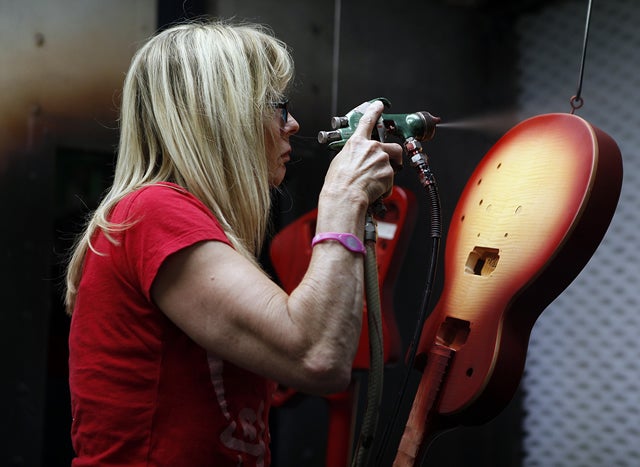Gibson Guitar Plays the Overcriminalization Blues
Paul Rosenzweig /
Do you know all the laws of the United States? Do you know all the laws of each of the 50 states (not to mention the assorted territories, Indian reservations, and other enclaves)? Probably not. And yet “ignorance of the law is no excuse” has been a maxim of criminal law since time immemorial. The result is an ever-expanding discretion for prosecutors – who now can pick a target for an investigation and then scour the statutes for a suitable crime with which to charge him. As Lavrenti Beria, Stalin’s head of the dreaded secret police said proudly, “Show me the man and I’ll find you the crime.”
Now multiply that by 200 times – that being roughly the number of countries there are in the world – and you have some idea of the jeopardy that arises by operation of the Lacey Act. The Act was first adopted in the early 1900s with a wholly benign purpose of preventing big game poachers from killing endangered species in Africa. But because it was difficult to know all of the many prohibitions in African countries, the law used a short-cut and simply made it a crime to take and import any animal in violation of the laws of another country. No big deal, when animal imports were few and far between and federal criminal prosecutions rarer than hen’s teeth.
No longer. The Lacey Act has since been expanded, first to cover endangered plants (like, say, orchids) and most recently to cover all forms of flora and fauna, including wood. Now you can begin to get the picture – if you use wood in the construction of any product and the wood is imported from overseas, you are obliged to know the laws of every country from which the wood is imported – and not just the laws, but even down to the most picayune regulations.
Something like that seems to have happened to Gibson Guitar – the fabled guitar manufacturers of Tennessee. Federal agents raided their factories and seized some wood – wood the company says came from a Forest Stewardship Council certified provider. Reports vary, but it appears that the allegation is that the wood shipped from India was not a finished product, but only raw materials. Had it been “finished” in India (cut into thinner pieces) then no Indian regulation would have been broken.
Of course, it is possible that we may not know all of the facts of the Gibson case. Perhaps the company was more than negligent and willfully violated the law – that is what the criminal process is intended to discover. But there is one thing we do know: the Lacey Act creates traps for the wary and unwary alike. Any law that incorporates by reference the millions of laws and statutes of the hundreds of nations around the globe is an overbroad formula for prosecutorial overreach and needs to be changed.
In the past, the Lacey Act has been used to prosecute spiny lobster importers and orchid growers. Today it is guitar manufacturers and tomorrow, who knows – fruit importers? Perhaps the First Lady’s interest in nutrition will prevent that. But it is time, and well past time, for this law to be changed.

